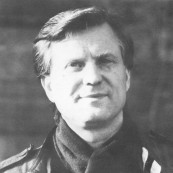| Voice/Instrument: | Tenor |
Biography
Born: November 6, 1939 - Dresden, Germany
The German tenor, Eberhard Büchner, studied first the organ, and from 1955 to 1959 was member of a Dresdner Kantorei. Afterwards, from 1959 to 1964, he gor training as a solo singer at Carl Maria von Weber-Musikhochschule in Dresden, where he was pupil of Harry Schwickardi.
Eberhard Büchner made his debut in 1965 at the State Theatre of Schwerin as Tamino in Die Zauberflöte. In 1966 he was appointed to the State Opera of Dresden; after repeated appearances at this house, he was since 1968 also a member of the State Opera of Berlin, in which he participated in 1969 in the premiere of Paul Dessau’s opera Lanzelot. In 1968 he received the Bach Prize in Leipzig with excellently. On the stage he was specialist successfully in the lyric area, in particular as Mozart singer.
In addition Eberhard Büchner had international career as oratorio and Lieder singer. In 1972 he performed in Vienna the song cycle Die schöne Müllerin by Schubert. In 1973 he was soloist in a concert at the Vatican under Leonard Bernstein. In 1975 he made his debut at the Covent Garden Opera in London. Appearances in the USSR, in Italy and in Bulgaria. He appeared as a guest at the State Operas of Vienna and Hamburg and at the Opera of Köln. At the Salzburg Festival he appeared in 1975 and 1979 in Mozart concerts, in 1985-1987 he sang there the role Flamand in the Capriccio by Richard Strauss. He guested in Hamburg in 1983 in the title role in the Baroque opera Amadis by J.Chr. Bach. In 1983 he appeared at the Théâtre de la Monnaie Brussels as Flamand, in 1984 in Amsterdam as Don Ottavio in Don Giovanni, in 1986 in Copenhagen as Lohengrin. In 1986 he participated at the State Opera of Berlin in the premiere of renovation of Euryanthe by Weber. In 1988 he appeared at Milan’s La Scala as Erik in The Flying Dutchman. In 1993 he appeared at the Grand Opéra Paris (Palais Garnier) as Flamand, in 1995 in Amsterdam in the Zauberflöte. In 1995 he worked at the State Opera of Hamburg in the premiere of Alfred Schnittke’s Historia von Dr. Johann Fausten (as the old man).
Recordings: Eterna (Recital; also operata parts and light music); on HMV-Electrola as Morosus in Die schweigsame Frau by R. Strauss; on Eurodisc Froh in Rheingold and soloist in the B minor Mass (BWV 232) by J.S. Bach and in Das Paradies und die Peri by R. Schumann. On DGG he participated in recordings of Secular Cantatas of J.S. Bach and as a young sailor in Tristan; on Philips in sacred vocal music of Mozart; on Capriccio in Die Wahl des Herakles by Georg Frideric Handel, in Beethoven’s 9. Sympohny and in Der Kuhhandel by K. Weill; on Ars Vivendi in Lazarus by Schubert; on Berlin Classics in Leonce und Lena by P. Dessau; on Wergo in Simplicius Simplicissimus by K.A. Hartmann; on Calig in Das Buch mit sieben Siegeln by Fr. Schmidt; on RCA/BGM in Historia von Dr. Johann Fausten by A. Schnittke mentioned above.





